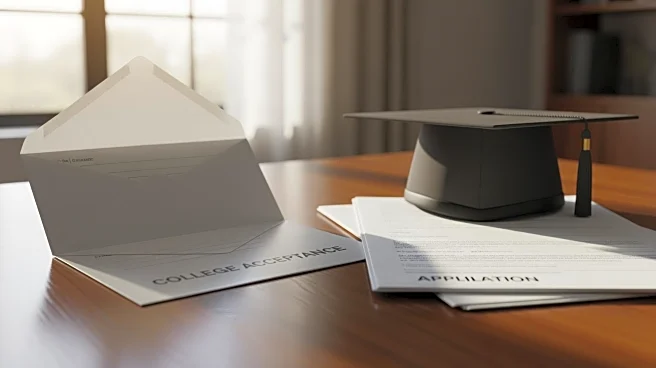What's Happening?
Markeiz Ryan, a 36-year-old former U.S. Air Force member, has relocated to Vietnam after his military service, living on approximately $4,000 a month. Ryan's decision to move was influenced by his experiences during his service, including a period of depression following disciplinary action while stationed in Korea. After being honorably discharged in 2019, Ryan chose Vietnam for its affordability and the happiness he experienced during a visit. His income is derived from various sources, including VA disability benefits, the GI Bill, teaching English, and occasional voiceover work. Ryan resides in Ho Chi Minh City, where he rents a two-bedroom apartment and enjoys a lifestyle that he describes as middle or above middle class in Vietnam.
Why It's Important?
Ryan's story highlights the financial and lifestyle benefits that some American veterans find in relocating abroad, particularly to countries with lower living costs. His ability to live comfortably on a modest income underscores the economic disparities between the U.S. and Vietnam, offering insights into how veterans can leverage their benefits and skills in different environments. This move also reflects broader trends of expatriation among retirees and veterans seeking affordable living conditions and a peaceful lifestyle. Ryan's experience may inspire others facing similar financial or personal challenges to consider alternative living arrangements outside the U.S.
What's Next?
Ryan plans to continue his life in Vietnam, with no intentions of returning to the U.S. His focus remains on maintaining his current lifestyle and pursuing personal happiness. As he continues to adapt to life in Vietnam, Ryan may explore further opportunities for income, such as expanding his teaching or voiceover work. His story could encourage other veterans to explore similar paths, potentially leading to increased expatriation among those seeking affordable living conditions and a change of pace.
Beyond the Headlines
Ryan's relocation to Vietnam also touches on cultural and social aspects, such as the perceived safety and calmness of life in Vietnam compared to the U.S. His experience suggests a shift in priorities, where personal well-being and happiness take precedence over political and economic concerns. This narrative may resonate with individuals seeking a simpler, less stressful lifestyle, highlighting the potential for cultural exchange and adaptation in expatriate communities.








